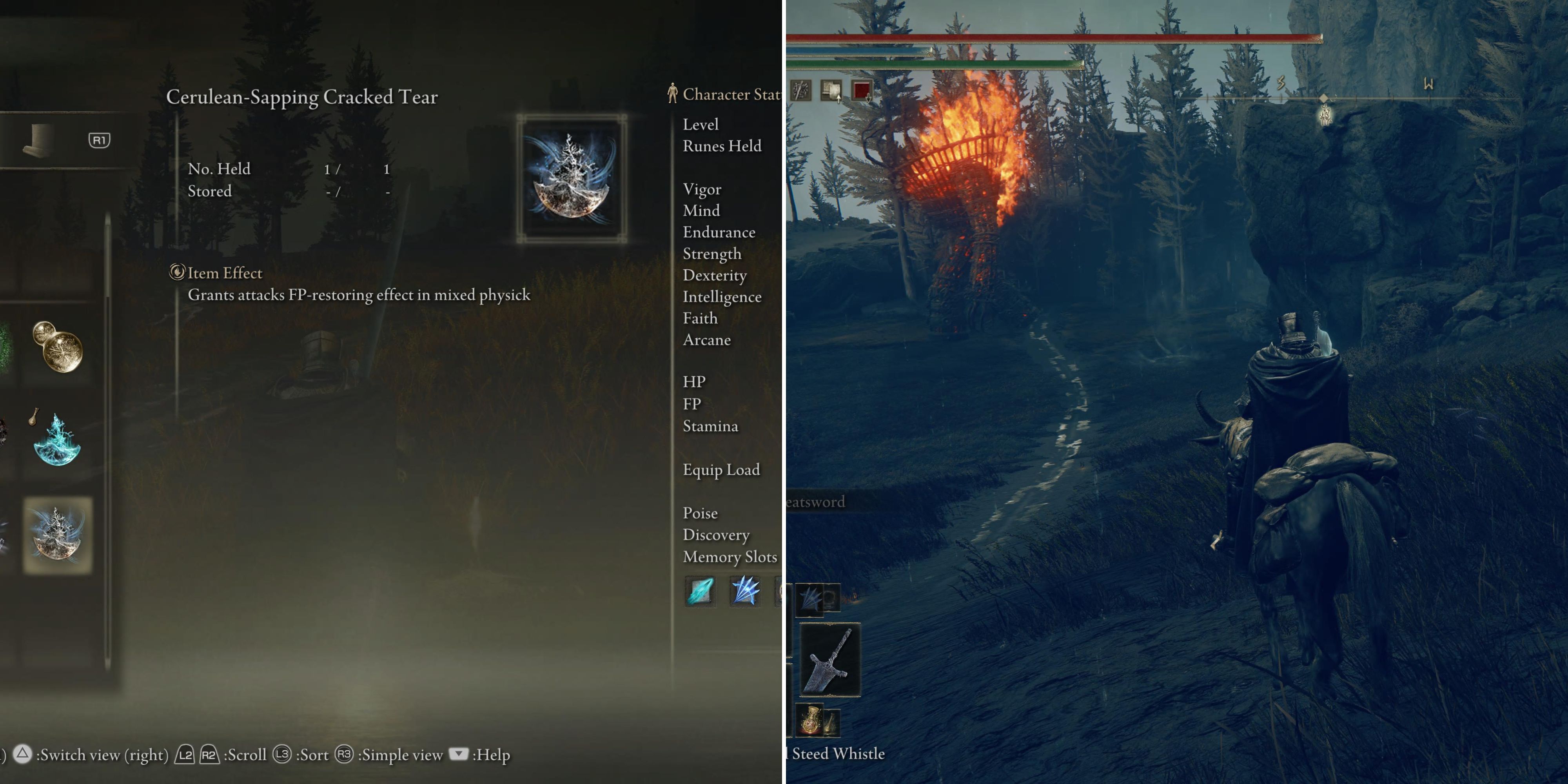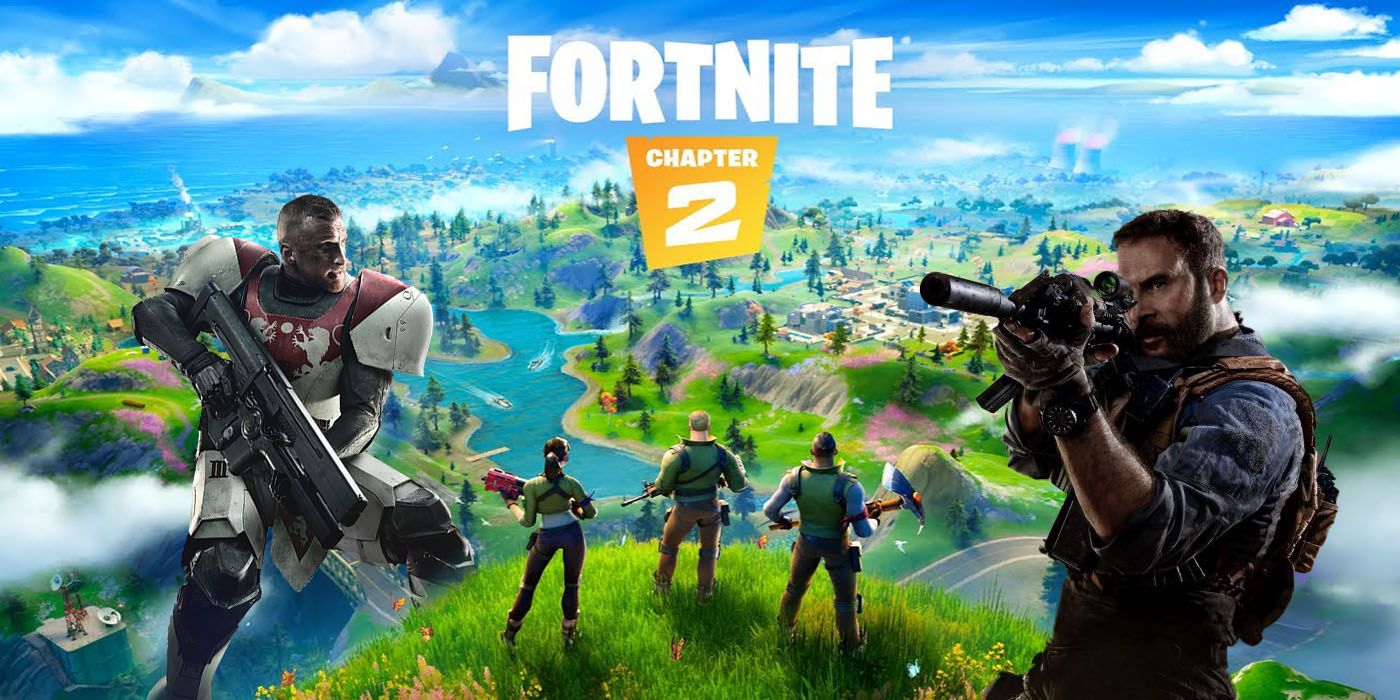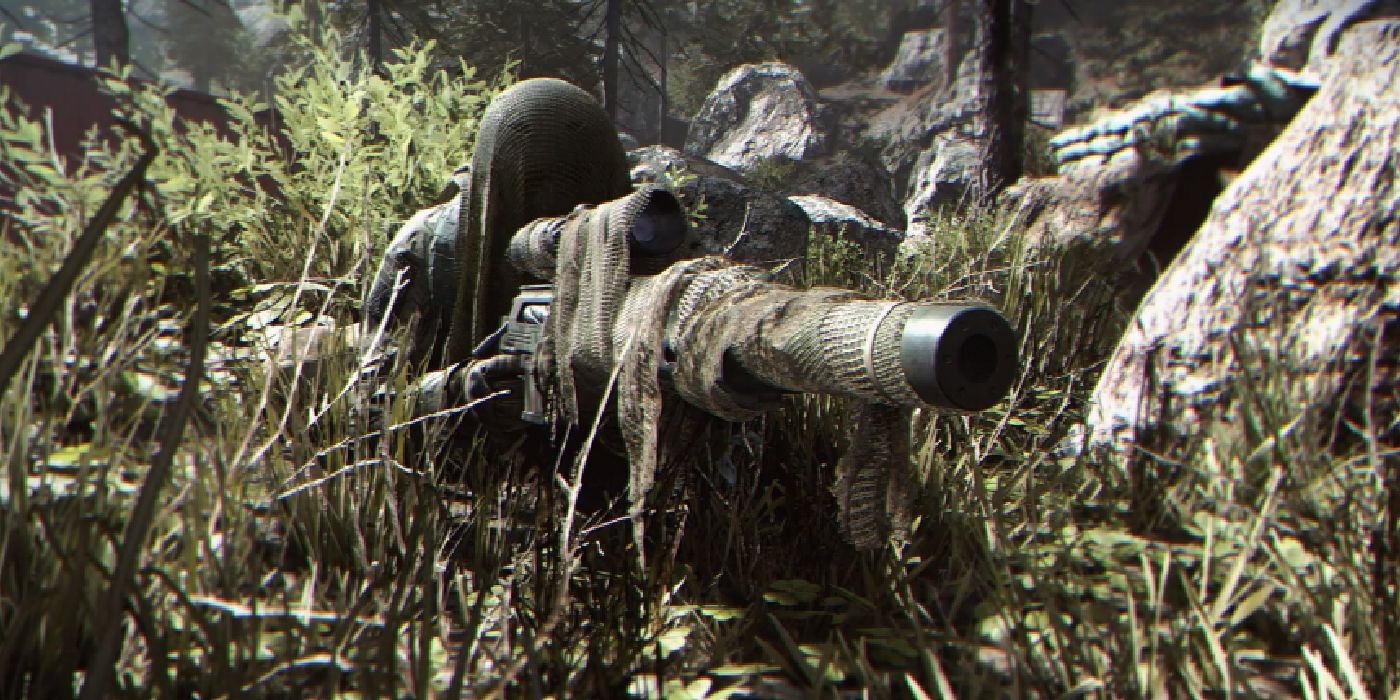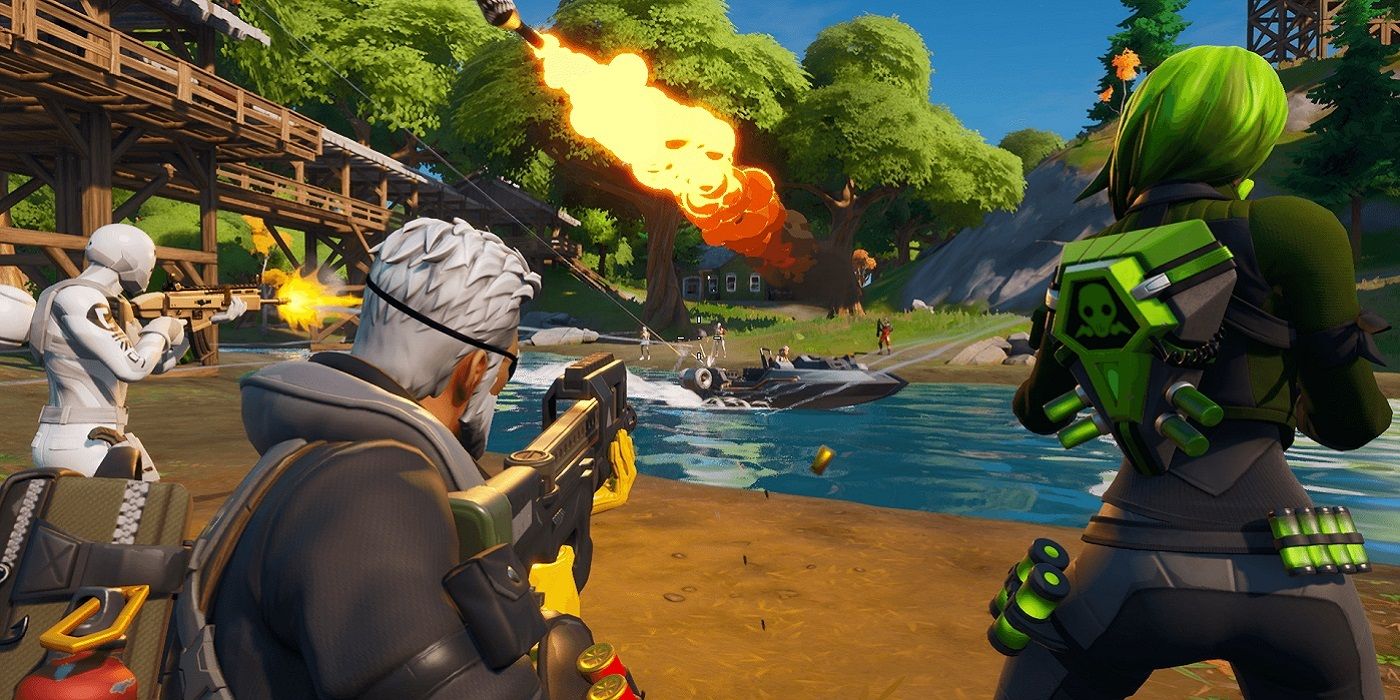In 2010, the first-person shooter was at an apex. The genre was at the height of its popularity, still riding the high of the success of the Halo and Call of Duty franchises. That first year of the decade, 2010, marked the releases of Halo: Reach and Call of Duty: Black Ops. But the console fps would soon make way for multiple new genres of shooter that would dominate the rest of the decade.
Without any context for the decade that proceeded it, an analysis of the shooter genre over the past decade just isn't as convincing. In 2001, he original Halo: Combat Evolved translated the shooter genre to a console controller, uncovering a new genre for console players. Only six years later, Call of Duty 4: Modern Warfare, not the 2019 Modern Warfare reboot, reinvented the control scheme for shooting on consoles once again, popularizing the left-trigger to zoom, right-trigger to shoot scheme and cementing it as the gold standard. In 2007, Halo 3 and Modern Warfare were two of the most popular games, and the legacy they left bled into other genres for years to come.
Last console generation, shooters were everything. Both the Xbox 360 and PS3 controllers placed a greater importance on triggers than in previous designs and games like Gears of War were proving that the FPS wasn't the only shooter subgenre that was making an impact. The 2000s saw the popularization of the cover shooter. Third-person cover mechanics became increasingly popular at the start of this decade, making their way into the Mass Effect trilogy and leading to the creation of some unique twists on the genre like Platinum Games' Vanquish.
But by the time the latest generation of consoles came around, these massive franchises started to lose a little steam and the competitive FPS scene began to dry up. Bungie left Halo, Call of Duty became less and less innovative with each annual release, and esports started to gain in popularity. Diminishing returns on sequels coincided with the fact that these developers had not quite figured out how to make FPS games fun to watch. MOBAs like League of Legends figured it out early.
As games transitioned to a Twitch world, and other genres like the RTS began to modernize, it seemed that competitive shooters were no longer on top of the world. But it didn't take long for shooters to start expanding in new directions. It's worth mentioning that another major aspect of the console shooters' success was the addition of RPG elements. Call of Duty 4 introduced loadouts and leveling to the military shooter and years later RPG elements can be found in a majority of popular games, regardless of genre. It only makes sense that some games took this a step further and drew heavy inspiration from the MMO.
Bungie stopped making Halo games and the franchise has lacked focus in the years since. What Bungie went on to create was not as immediately revolutionary but has proved itself to be one of the biggest games of this decade. Destiny blends the first-person shooter with so many MMO elements like quest design, expansions, and loot. While it has been a bumpy road for Bungie, the trajectory of Destiny and Destiny 2 has been one of success, as it enters the list of best selling shooter franchises of all time. Destiny has been at the forefront of games as a service for the latter half of the past decade and has built up a dedicated fan base who are always ravenous for more content.
It is impossible to discuss the evolution of shooters without acknowledging the battle royale genre. MMO-like service games are popular across genres, but the shooter itself has undergone monumental changes since 2017. After years of PC game modding communities doing work on Arma and creating Day-Z, the battle royale broke through properly with the release of PlayerUnknown's Battlegrounds into Steam early access. The game was picked up by game enthusiasts, media, and PC gamers and then everything changed later that year. A project many years in development from Epic Games made the biggest 180 pivot in all of gaming.
Originally just including the "Save the World" mode, Fortnite became the breakthrough battle royale shooter almost overnight. In 2018, it reached a level of popularity 99% of games would not dream of. The colorful aesthetics of Fortnite brought battle royale to players of all ages wherever they played video games.
This genre marks yet another evolution in where shooters are played. In the 90s, the shooter was a PC genre. The 2000s showed players what a shooter on the console could really play like. In the past few years, Fortnite nearly singlehandedly tore down these console divides. The game is playable on all consoles and PC and is insanely popular on mobile. And the entire Fortnite community can now play together. Epic used the massive popularity of the game to push forward cross-play. Once a pipe dream, a new decade where cross-play has the potential to become the new norm for multiplayer games. Fortnite is helping do away with it mattering where players play their shooters, just as long as they can all play them together.
In the midst of these sweeping genre changes, it's worth mentioning Overwatch. There really isn't anything else like it this decade, unless we count the games explicitly ripping it off, but the successes of Overwatch feel like a direct response to reasons the competitive shooter lost so many players throughout the years. Blizzard's hero shooter took cues from the MOBA and merged it with team-based shooting. On a fundamental level, the characters are diverse and the game is simply fun to play, but there is so much going on in the periphery of Overwatch that makes it groundbreaking.
Years of Call of Duty and other multiplayer shooters emphasized being the best: coming in first. These shooters were about getting the best kill-death ratio, becoming an unstoppable killing machine. In its post-game breakdown screens it becomes clear that Overwatch places emphasis on team work. This shift of focus is what made the game so inviting to many players who feel more twitch-y shooters have become impossible to get into. Positive reinforcement is key to the success of Overwatch.
The shooter is still one of the most popular genres in gaming, but that hasn't been the case this entire decade. Entirely new subgenres like the battle royale demonstrate how quickly the popular taste change and how much game genres blend and take from one another to keep the medium fresh.






